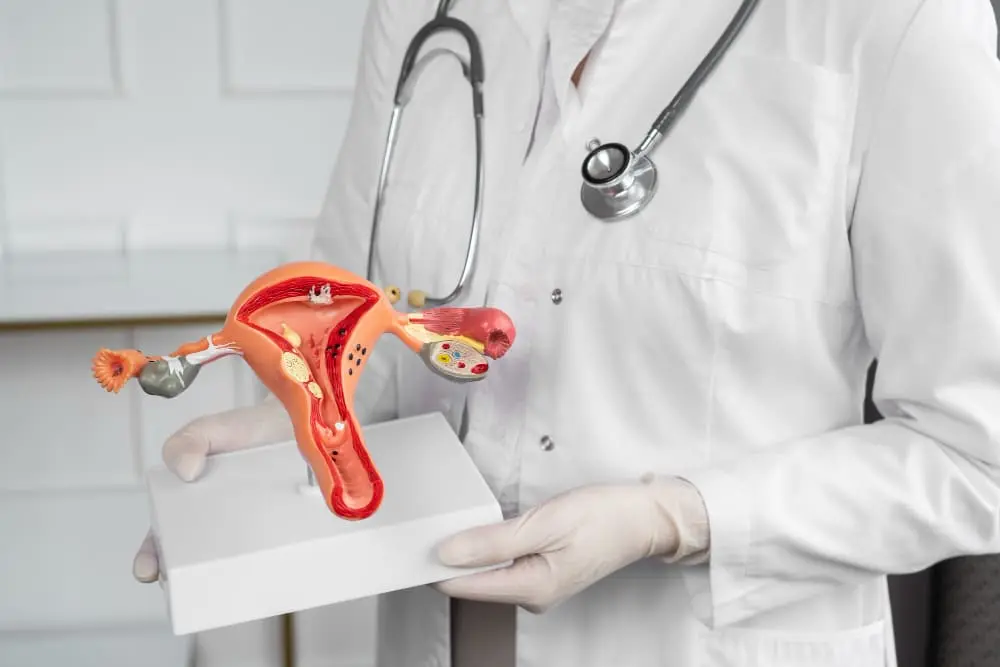Premature Ovarian Insufficiency (POI): Causes and Management
Premature Ovarian Insufficiency (POI), also known as premature ovarian failure, is a condition where a woman’s ovaries stop functioning properly before the age of 40. This condition can lead to a range of health issues, including infertility and early menopause symptoms. Understanding the causes and management of POI is crucial for those affected by this condition.
Understanding Premature Ovarian Insufficiency
To grasp the complexity of POI, it’s essential to first understand the normal functioning of the ovaries. In a healthy reproductive system, the ovaries produce hormones, including estrogen and progesterone, which regulate the menstrual cycle and overall reproductive health. Additionally, they release eggs for fertilization. In women with POI, the ovaries fail to perform these functions effectively.
Causes of Premature Ovarian Insufficiency
There are several potential causes of POI. While in some cases the exact cause remains unknown, the following are the most common factors associated with this condition:
Genetic Factors: Genetics play a significant role in the development of POI. Certain genetic disorders, such as Turner syndrome and Fragile X syndrome, are linked to premature ovarian insufficiency. In these cases, abnormalities in the chromosomes can lead to ovarian dysfunction.
Autoimmune Disorders: Autoimmune diseases, where the body’s immune system mistakenly attacks its own tissues, can also contribute to POI. Conditions like Addison’s disease and hypothyroidism are known to be associated with ovarian insufficiency.
Chemotherapy and Radiation Therapy: Treatments for cancer, including chemotherapy and radiation therapy, can damage the ovaries and lead to premature ovarian insufficiency. The extent of the damage depends on the type and duration of treatment.
Surgery: Surgical removal of the ovaries, whether due to cancer or other medical conditions, results in immediate POI. Sometimes, surgeries involving the pelvis can inadvertently damage the ovaries, leading to this condition.
Infections: Certain infections, such as mumps, can impact ovarian function. Though rare, these infections can cause significant damage to the ovarian tissue.
Environmental Factors: Exposure to toxins, such as cigarette smoke, chemicals, and pesticides, has been linked to ovarian insufficiency. These environmental factors can accelerate the aging process of the ovaries.
Symptoms of Premature Ovarian Insufficiency
The symptoms of POI are often similar to those of menopause, which can make diagnosis challenging. Common symptoms include:
Irregular or Missed Periods: One of the earliest signs of POI is irregular menstrual cycles or missed periods. Over time, periods may stop altogether.
Hot Flashes and Night Sweats: Women with POI often experience hot flashes and night sweats, similar to menopausal symptoms.
Vaginal Dryness: Due to decreased estrogen levels, vaginal dryness is a common symptom, which can lead to discomfort during intercourse.
Mood Swings and Irritability: Hormonal imbalances caused by POI can lead to mood swings, irritability, and even depression.
Difficulty Conceiving: Infertility is a significant concern for women with POI. The reduced function of the ovaries makes it difficult to conceive naturally.
Diagnosis of Premature Ovarian Insufficiency
Diagnosing POI typically involves a combination of medical history, physical examination, and laboratory tests. Here’s how healthcare providers diagnose this condition:
Medical History and Physical Examination: The first step in diagnosing POI is a thorough review of the patient’s medical history and a physical examination. This helps rule out other potential causes of the symptoms.
Blood Tests: Blood tests are crucial for measuring hormone levels. Typically, women with POI have elevated levels of follicle-stimulating hormone (FSH) and low levels of estrogen. These tests are usually performed on specific days of the menstrual cycle for accuracy.
Genetic Testing: If a genetic cause is suspected, healthcare providers may recommend genetic testing to identify any chromosomal abnormalities associated with POI.
Ultrasound: An ultrasound may be used to examine the ovaries and assess their size and function. In POI, the ovaries are often smaller than normal and may contain fewer follicles.
Management of Premature Ovarian Insufficiency
While there is no cure for POI, various management strategies can help alleviate symptoms and improve quality of life. Here are the most common approaches:
Hormone Replacement Therapy (HRT): HRT is often recommended to manage the symptoms of POI, such as hot flashes and vaginal dryness. It involves taking estrogen and progesterone to compensate for the hormones the ovaries are not producing. However, HRT should be carefully monitored by a healthcare provider due to potential risks and side effects.
Calcium and Vitamin D Supplements: Women with POI are at an increased risk of osteoporosis due to low estrogen levels. Calcium and vitamin D supplements can help maintain bone density and reduce the risk of fractures.
Lifestyle Modifications: Making healthy lifestyle choices can significantly impact the management of POI. This includes maintaining a balanced diet rich in calcium and vitamin D, engaging in regular physical activity, and avoiding smoking and excessive alcohol consumption.
Fertility Treatment: For women who wish to conceive, fertility treatments such as in vitro fertilization (IVF) with donor eggs may be an option. Consulting with a fertility specialist can provide more information on the available options.
Psychological Support: Coping with POI can be emotionally challenging. Psychological support, such as counseling or joining a support group, can help women manage the emotional impact of the condition.
Regular Medical Check-ups: Regular check-ups with a healthcare provider are essential for monitoring the progression of POI and managing any associated health risks. These visits allow for timely adjustments to treatment plans and preventive care.
Living with Premature Ovarian Insufficiency
Living with POI requires ongoing management and support. It’s important for women with this condition to stay informed and proactive about their health. Here are some tips for living with POI:
Stay Informed: Educate yourself about POI and its potential impacts on your health. Understanding the condition can help you make informed decisions about your treatment and lifestyle choices.
Seek Support: Connecting with others who have POI can provide valuable emotional support. Support groups, both in-person and online, can offer a sense of community and shared experiences.
Communicate with Your Healthcare Provider: Maintain open communication with your healthcare provider. Discuss any concerns or symptoms you may have and stay updated on the latest treatment options.
Focus on Overall Health: Prioritize your overall health by eating a balanced diet, exercising regularly, and getting enough sleep. These habits can improve your well-being and help manage POI symptoms.
Consider Future Fertility: If you plan to have children, discuss your options with a fertility specialist early on. Understanding your fertility options can help you make decisions about family planning.
Conclusion
Premature Ovarian Insufficiency is a challenging condition that affects many aspects of a woman’s life. While the causes of POI can vary, from genetic factors to environmental influences, understanding these causes can aid in diagnosis and management. Though there is no cure, various treatments and lifestyle modifications can help manage symptoms and improve quality of life. With proper medical care and support, women with POI can lead healthy and fulfilling lives. It’s crucial to stay informed, seek support, and work closely with healthcare providers to navigate the challenges of this condition.










